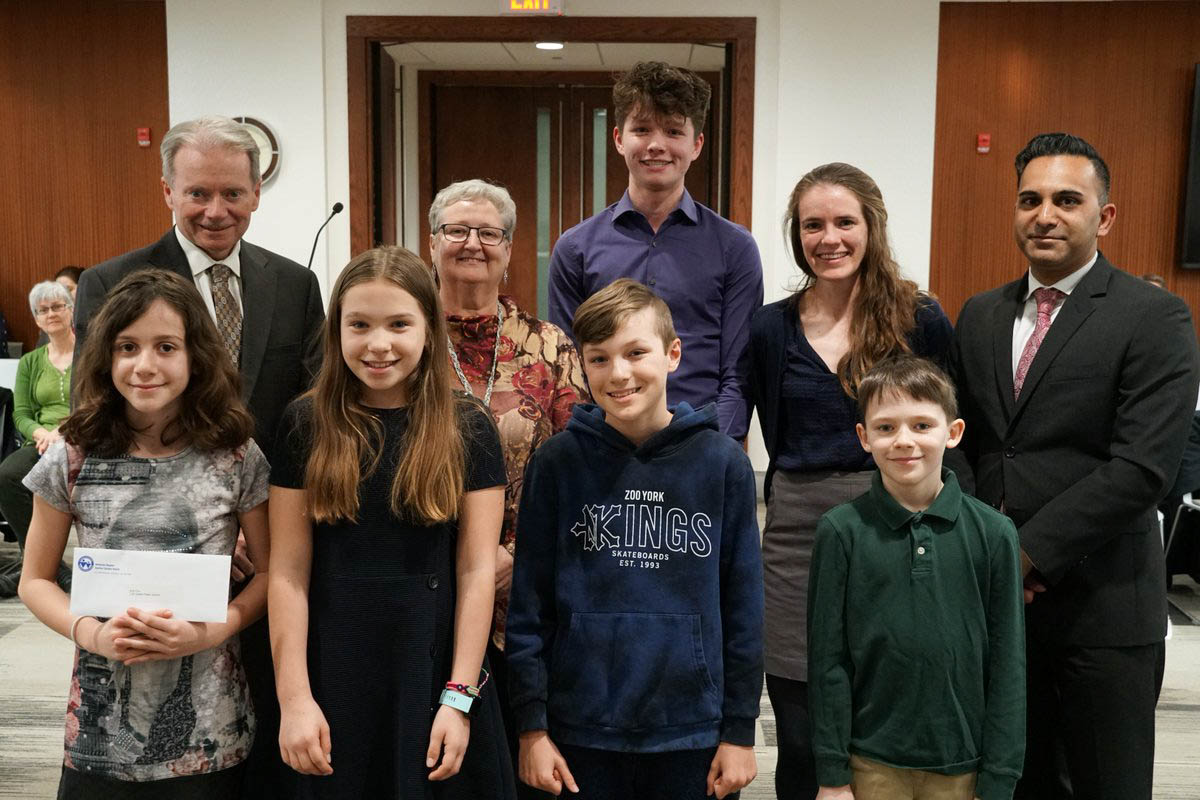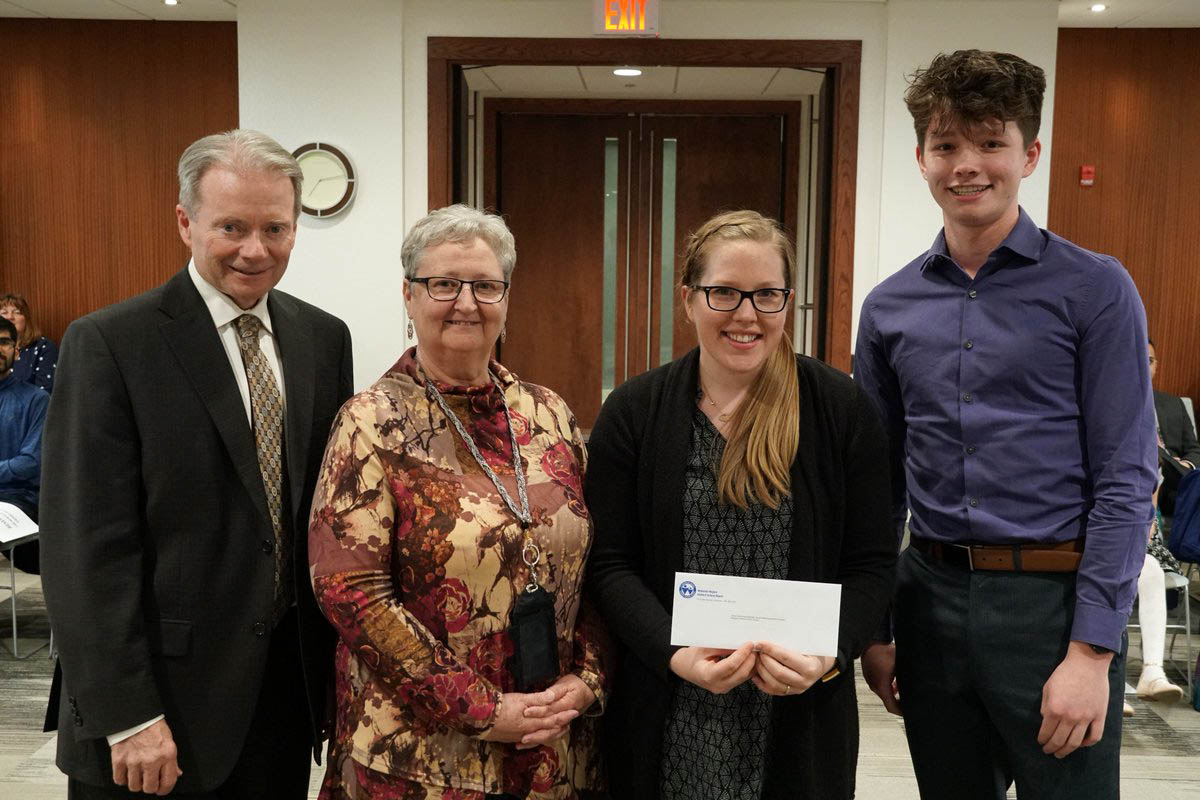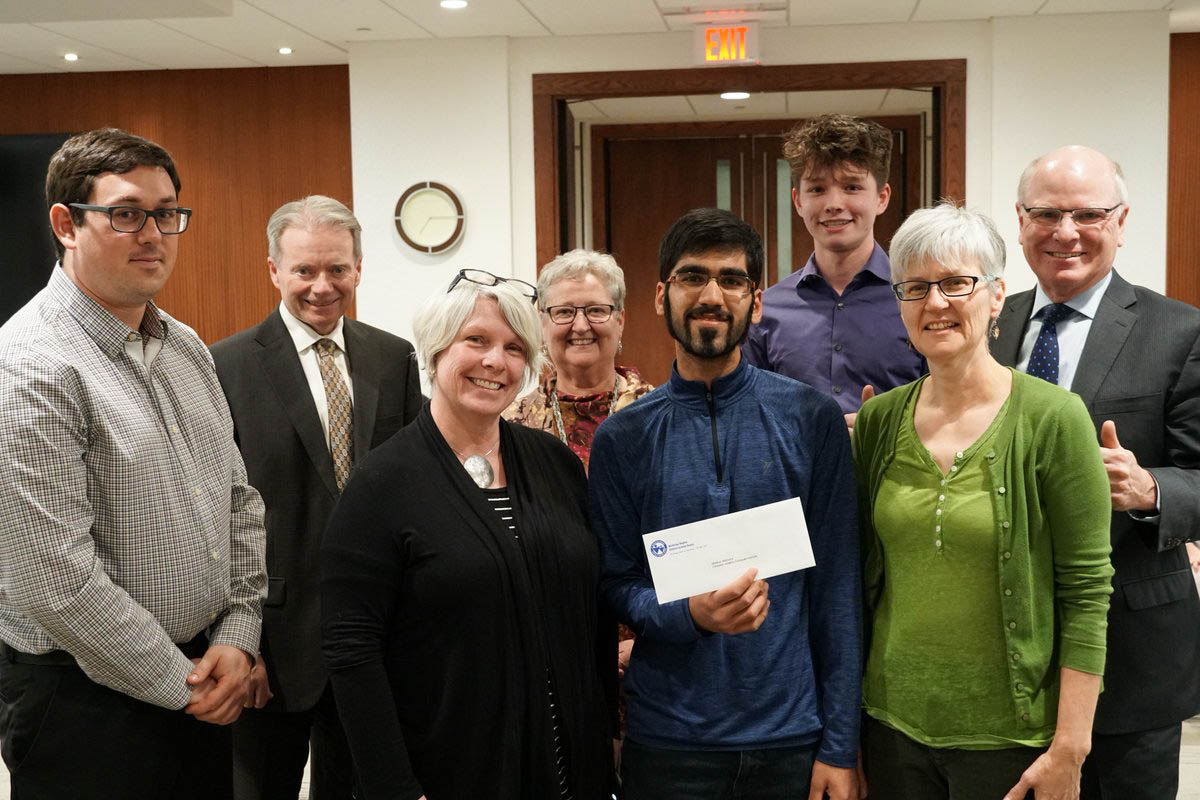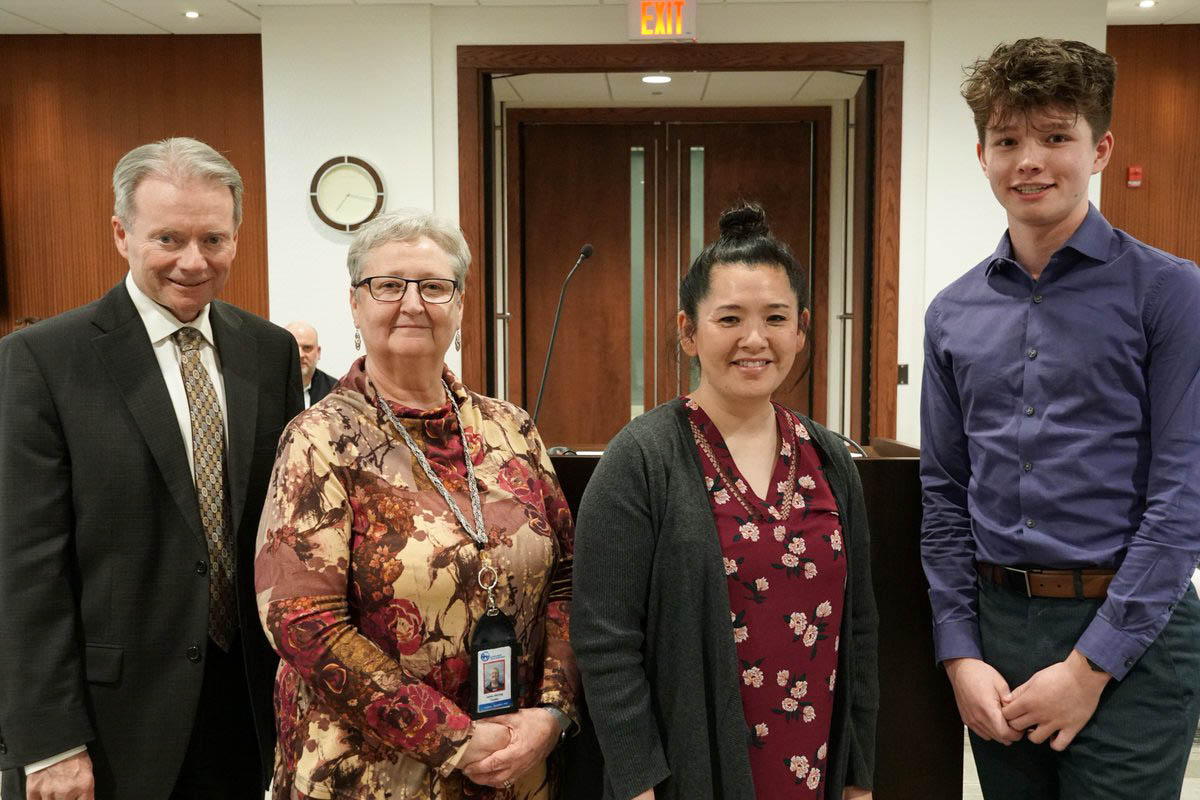May 3rd, 2019
In a world where global warming, climate change and the reduction of waste is the collective concern of many politicians, activists, and scholars, our staff and students are working hard to do their part to make a difference.
To honour the life of secondary school teacher, Tim Walker, and his contributions to education and environmental initiatives, an award was established in 2006 by the Board of Trustees to encourage the growth and sustainability of green initiatives in our schools. Every year, schools are invited to submit their applications to receive funding – up to $2,000 is available each year.
An adjudication committee consisting of Trustee Joanne Weston, Student Trustees Ben Wahl and Oscar Judelson-Kelly, and Stephanie Walker, mother of the late Tim Walker, review applications and take the following criteria into consideration:
- Staff and student involvement (current and future) and environmental stewardship
- Impact on student learning and foster learning and engaging students
- Environmental benefits – shading, greening, waste reduction, recycling.
The 2018-19 recipients of the Tim Walker Awards are J.W. Gerth Public School, Margaret Avenue Public School, Cameron Heights Collegiate Institute, and Waterloo Collegiate Institute.
We would like to take a moment to congratulate all four recipients. Your efforts to keep your school green and environmentally friendly will have a lasting impact for years to come.
Project Synopsis
Elementary Award Recipients
J. W. Gerth Public School – Gerth Food Garden (Phase 2)
The school’s edible garden aims to teach children about the benefits of sustainable living and to foster a love and respect for our natural environment that they will carry with them their whole lives. The garden will also be used as an outdoor classroom space for classes to investigate, through hands-on learning. Our goal is to empower students to make changes in their world so that they can continue to experience the natural world around them as they grow. This grant will help the ECO Team continue to care for our vegetable garden and to help pay for strawberry plants (a new addition).

J.W. Gerth Public School award recipients with Student Trustee Judelson-Kelly, Chairperson Herring, and Director Bryant.
Margaret Avenue Public School – Community Food Garden Project
Our school is starting a community food garden. Our main goal is to promote collaboration between student groups (Life skills ACE class, student leaders on ECO Team, general school population) and the community through environmental stewardship. We are building two raised garden beds outside our Welcome Centre door. The garden will be food-based and will provide an outdoor learning opportunity for our ACE students.

Olivia Cummings Galbraith, SERT/Guidance teacher at Margaret Avenue Public School, with Student Trustee Judelson-Kelly, Chairperson Herring, and Director Bryant.
Secondary Award Recipients
Cameron Heights Collegiate Institute – CHCI Recycling Renovation
We are going to be upgrading Cameron Heights’ recycling program to decrease our school’s waste and environmental footprint, while fostering an environmentally-conscious school community. Specifically, we are going to run an educational campaign to encourage our school’s students and staff to recycle waste correctly. Additionally, we are going to be streamlining our recycling bin collection and sorting by creating a recycling station in our cafeteria. This will allow students to be more aware of their recycling habits and minimize the amount of waste they recycle incorrectly, both at school and home.

Cameron Heights Collegiate Institute award recipients with Student Trustee Judelson-Kelly, Chairperson Herring, and Director Bryant.
Waterloo Collegiate Institute – Urban Indigenous Herbal/Medicinal Healing Garden and Relaxation Centre
In keeping with our board’s strategic priority of “students first,” this is a project that will help improve our culture of innovation through the involvement of multiple stakeholders within our school family and community. By creating a differentiated learning environment, we will support a diverse student body with the end result being improved student well-being and academic success. Our goals are to:
- Create an urban healing garden/architectural project and commemorative relaxation area. Sacred medicines will be planted in stone/wood boxes along with milkweed, wild blueberries, raspberries, etc.
- Honour and showcase First Nations wisdoms and traditions with the creation of decorative pieces
- Build stone structures that will be part of a memorial for Residential School Survivors highlighting some of their stories
- Construct benches for sitting, while a painted medicine wheel rock foundation will be an architectural feature for which historic and scientific significance can be discussed
- Create a ceremonial space for Indigenous leaders to host future powwows and smudging ceremonies

Emily Chin, teacher at Waterloo Collegiate Institute, with Student Trustee Judelson-Kelly, Chairperson Herring, and Director Bryant.



